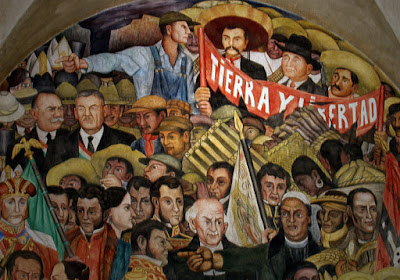Ricardo Flores Mag�n, PLM, and the Labor Struggles of California Farmworkers

�Cipriano Ricardo Flores Mag�n (known as Ricardo Flores Mag�n; September 16, 1874 � November 21, 1922) was a noted Mexican anarchist and social reform activist. His brothers Enrique and Jes�s were also active in politics. Followers of the Mag�n brothers were known as Magonistas . He has been considered an important participant in the social movement that sparked the Mexican Revolution.� �Periodically throughout their history, California farmworkers have fought vigorously, sometimes in small, local battles unknown to anyone but the immediate participants, and at other times in large campaigns�directed by radical or even openly revolutionary leaders�that have lasted for several seasons. The nature of these fights is rooted in the special character of agricultural production and in the real opportunities that farmworkers have encountered in the fields for nearly a hundred years.� Frank Bardacke, Trampling Out the Vintage : Cesar Chavez and the Two Souls of the United Farm Workers (Verso,